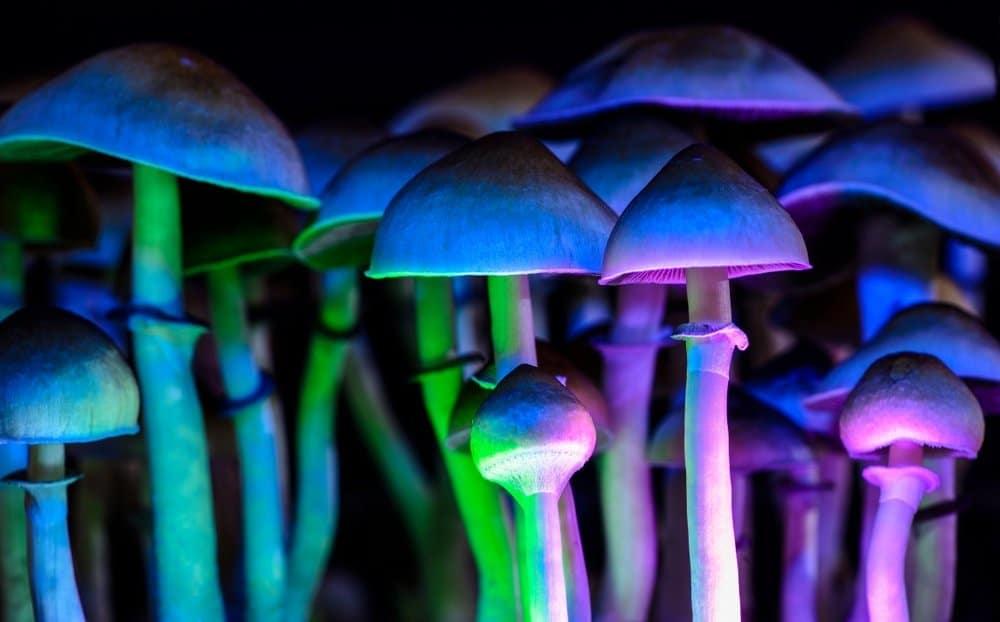Psilocybin, better known as ‘magic mushrooms’ or ‘shrooms’, is found in the caps and stems of certain mushrooms. It is one of the most popular illicit psychedelics. In fact, some cities like Denver and Oakland have decriminalized magic mushrooms.
Legal status aside, the drug is not tested for in standard 5-panel and 10-panel drug screenings. Checking for the presence of shrooms requires a more expensive lab test.
If you are concerned about a ‘bad trip’ or an upcoming drug test, here’s what you need to know.
How Does Your Body Process Shrooms?
Psilocybin can be sniffed, smoked or injected. These methods take effect quicker than through oral consumption.
Within half an hour of swallowing shrooms, your gut absorbs it and your liver begins to process it. ‘First-pass’ metabolism reduces the concentration of the drug before it circulates around your system. Body and brain effects soon occur.
Hallucinogenic effects peak around 90 minutes after consumption. And they can be felt for up to six hours. In some cases, lingering effects last for a number of days.
A ‘trip’ might end, but that doesn’t mean that the shrooms have left your body.
How Long Do Shrooms Stay in Lab Tests?
This depends on the type of test that is done. Biological samples such as urine, blood, saliva and hair usually work with different time-frames. Where an initial result is positive, a second lab test is used to confirm the result.
How Long Do Shrooms Stay in Your Urine?
If testing for shrooms is necessary, urine tests are usually conducted. Shrooms can stay in urine for 24 to 48 hours after the last time taken. With frequent consumption, the substance is detectable even after three days have passed.
Urine tests such as Abuscreen tests and EMIT tests which work with immunoassays check for traces of psilocybin and its metabolite, psilocyn. The latter is 1.4 times more potent than the former.
How Long Do Shrooms Stay in Your Blood?
Shrooms are detectable in blood within 30 minutes of ingestion. The substance remains in your blood for less than 24 hours. Coupled with the invasiveness of a blood test, the short window of detection explains why this procedure is rarely used to test for shrooms.
How Long Do Shrooms Stay in Your Saliva?
Saliva testing for shroom use is not common. But the drug is detectable in saliva for up to 48 hours.
How Long Do Shrooms Stay in Your Hair?
In general, it takes about a week for a drug to show up in hair growth. And substances are detectable in hair follicles for up to 90 days. Only small amounts of psilocybin typically enter the system. So, in order to find traces of the substance, more hair is required for testing than for other drugs.
To summarize, shrooms can typically be detected within these windows:
- blood – within 30 minutes and less than 24 hours
- saliva – up to 48 hours
- urine – up to 48 hours
- hair – up to 3 months
Can You Detox From Shrooms Faster?
No. A lifestyle that includes good hydration and nutrition, as well as exercise is optimal. But it’s not going to make much difference to how long substances last in the body. So, whether you’re a student, a rehab patient, or a member of the military, if you don’t want to test positive, avoid using.
Psilocyn has a half-life as low as 50 minutes. This means that it takes 50 minutes for half of the substance to leave the body. It takes another 50 minutes for half of what’s left to exit the system.
This process continues until the shrooms are completely removed. Drugs usually remain in the body for at least five half-lives.
But the half-life above refers to intravenous use. Most people consume shrooms orally which increases the half-life to 163 minutes. This means that if you drink a shroom tea, for example, it will take about 15 hours to fully detox.
In addition, detox depends on the following factors which are not the same for everyone:
- Genetics
- Age – older people tend to take longer to eliminate substances
- Weight
- Dosage
- Potency
- Frequency of use
- Duration of use
- Food intake and urine pH
- Other drugs in the system
- Overall health
- Kidney and liver problems – impairment of detox organs causes substances to remain in the body for longer
When it comes to potency, mushroom species such as psilocybe azurenscens and psilocybe cyanescens contain more psilocybin than others. Dried mushrooms are more potent than fresh ones too.
Drugs that are enzymatic inducers increase monoamine oxidase which breaks down psilocybin. This could expel psilocybin a little faster. But again, this is unlikely to make a big impact on a test result.
Treatment for Substance Abuse
Like LSD, shrooms are not highly addictive in the way that opioids are. But consuming them can lead to psychological dependence. If you or someone you know is struggling with addiction to substances, help is available.
Substance abuse can get in the way of leading a productive life. Frequent hallucinogen use can cause people to behave erratically and to lose their grip on reality.
Users can unintentionally self-harm or endanger others. Psychosis is also possible in those with a history of mental illness.
Health professionals make it possible to get back on track. Treatment includes detoxing, cognitive behavioral therapy and general support.
Therapy addresses the underlying causes for substance abuse. Therapists also provide patients with healthier coping mechanisms for cravings and stressful situations.
Take the first step towards change today. Contact our treatment center to discuss the best options for you.


